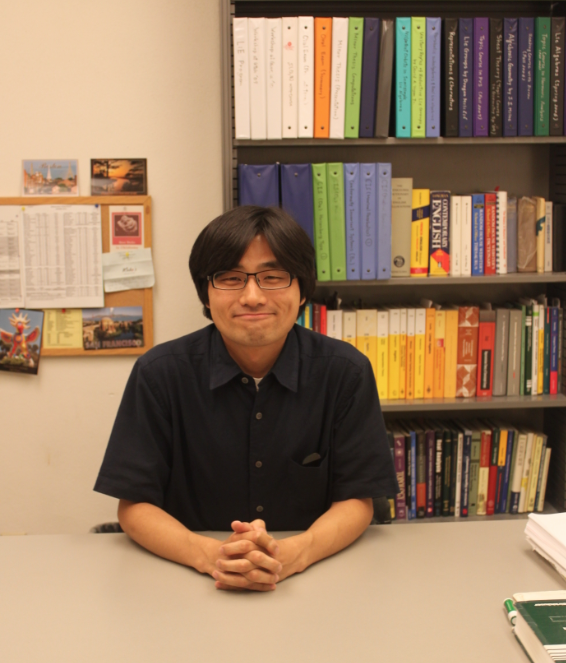Graduate Research: Toshihisa Kubo
Tuesday, May 15, 2012

Hometown: Marumori, Miyagi, Japan
Degree program: the Ph.D. program in Mathematics
Expected Graduation date: May, 2012
Faculty Advisor: Dr. Leticia Barchini
My field of interest is representation theory of Lie groups and Lie algebras. It is a branch of mathematics that is in the intersection of algebra, analysis, and geometry. My current research focuses on some interesting systems of differential equations, which we call conformally invariant systems. The systematic study of conformally invariant systems is started recently, and there are many interesting topics on the subject. My research work involves the systematic construction of such systems of differential equations and the study of the solutions of the systems. We see that there are strong connections between the theory of conformally invariant systems and ones for other branches of mathematics. Because of the strong connections, we believe that, by using the theory of conformally invariant systems, one could not only provide a different aspect to known theories but also expand such theories further.
How has your scholarly work been personally rewarding?
I would like to say that I have received several awards from the Mathematics department for the significance of my scholarly activities. Those awards include "Jeanne LeCaine Agnew Endowed Fellowship’’ for research presentations, "O.H. Hamilton Award’’ for the excellence in the study of topology, and "Schiller J. Scroggs Distinguished Graduate Fellowship’’ for the strong record of scholarship and leadership. I would also like to say that in this semester I have received an offer from the University of Tokyo, which is the highest ranked university in Japan, for a post-doctoral position. I am excited that I could enhance my research activity in the university from this June.
Why did you decide to attend OSU for graduate work?
I have two reasons, the active scholarship of the faculty members and the friendly atmosphere of the Mathematics department. Before attending OSU for graduate work, I was an undergraduate student of the University of Central Oklahoma at Edmond, Oklahoma. In my senior year I attended the open house for the graduate program for the Mathematics department. In the workshop I realized that the faculty members were highly recognized by their commitment to excellence in scholarship, and that they were always willing to support the graduate students for their success. I was also delighted that the stuff and graduate students were also nice and friendly. Because of the experience I decided to attend OSU for graduate work.
What has been the most surprising aspect of graduate work?
I think that the most surprising aspect is that nobody knows the ``correct answers’’ for our research in advance. For example, in undergraduate mathematics courses, when we struggle with exercises, we can easily find the answers from the textbook (or from the solution manual), if we wish. In contrast, in graduate work, as we create something new, nobody knows if the methods or techniques that we use are really correct. When I started my own research, it was making me nervous. However, now, as I am at the end of my graduate program, I also think that it is also the most exciting aspect for graduate work. I would like to say to graduate students that they do not have to be afraid of making a mistake and just try anything that they want to do for their research.
How do you think your current endeavors will prepare you for your chosen field after graduation?
As I stated for the second question, I am going to start my post-doctoral career in the University of Tokyo from this June. I am thinking to have collaborative work with the faculty members in the university. There are numerous interesting topics that I would like to study after graduation, that are suggested by our study of conformally invariant systems of differential equations. One of the interesting topics is the solutions for the systems of differential equations. Since I have built a number of conformally invariant systems in my Ph.D. thesis, I am planning to study the solutions of the systems for the next project. I would also like to generalize the results in my Ph.D. thesis in the future.
